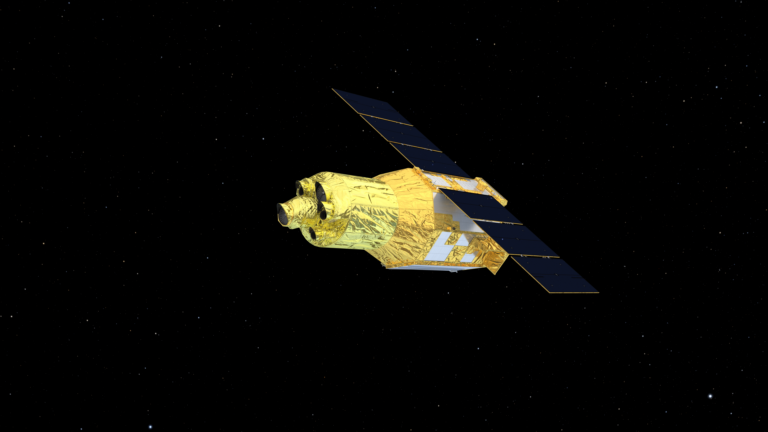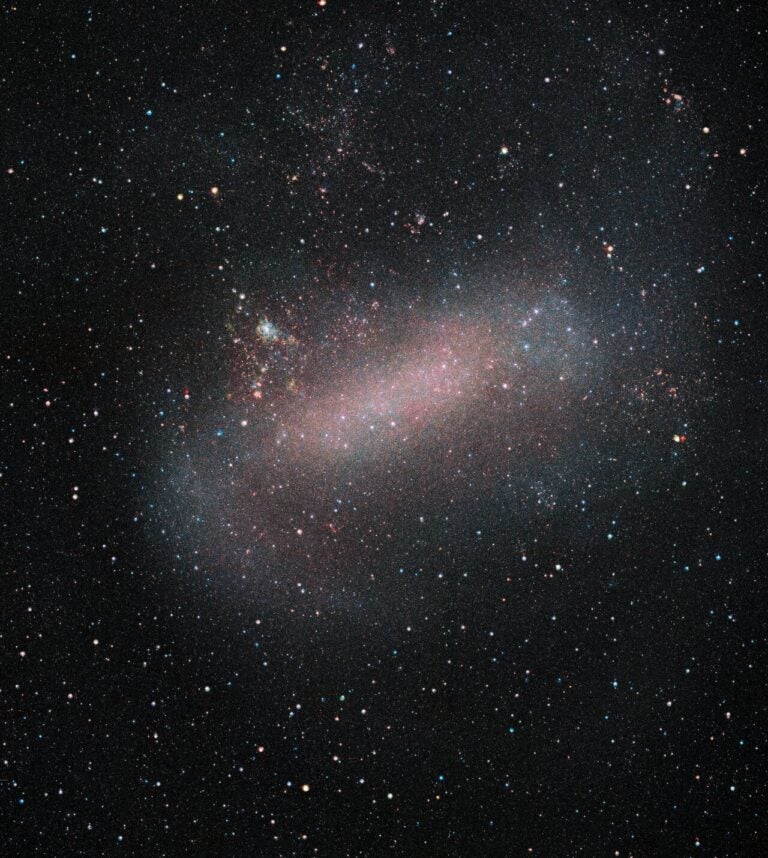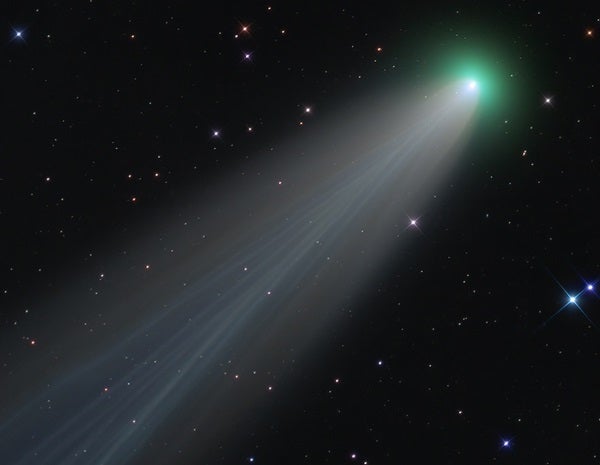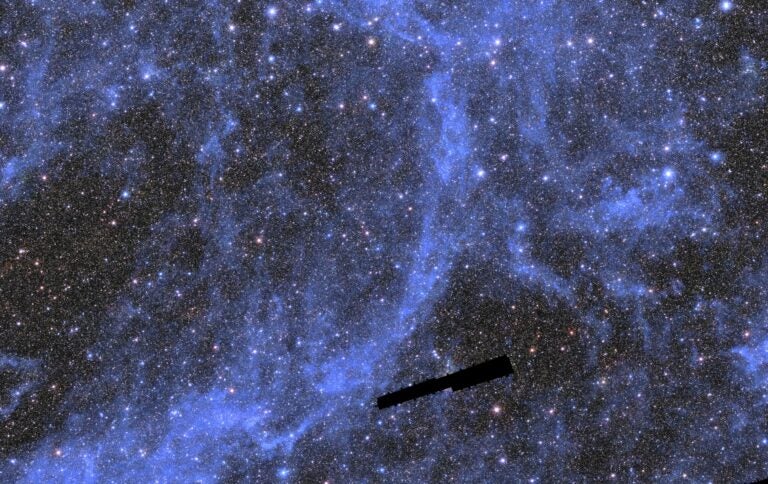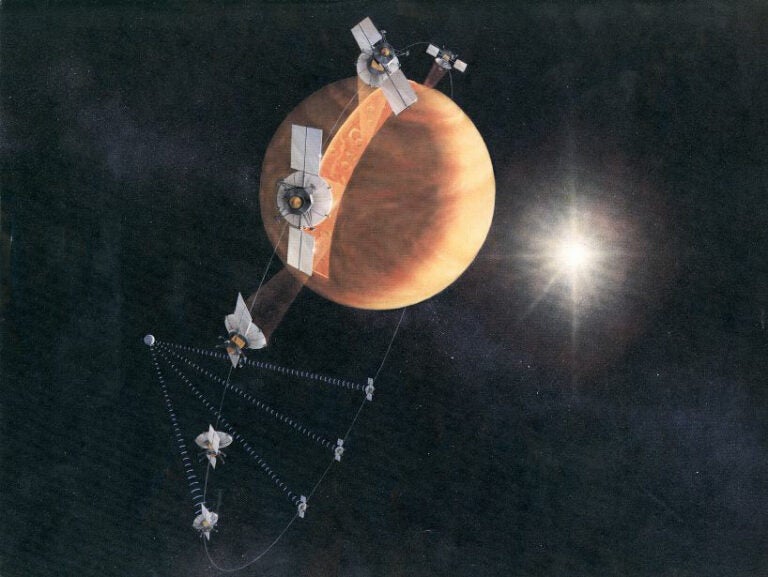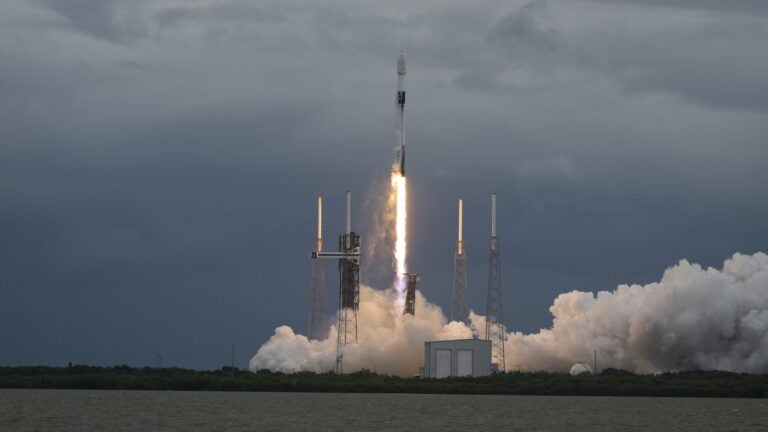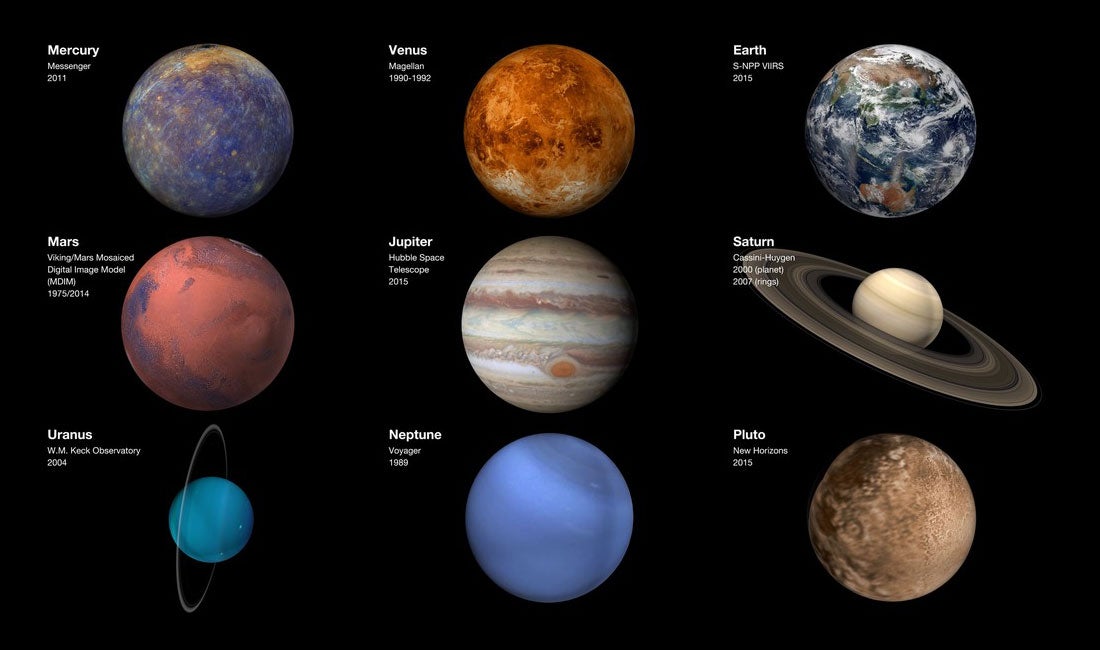
Travel to another moon or planet and your weight will change — but not your mass. This is because your weight on other worlds depends on the gravitational force of attraction between you and that world.
For example, a trip to Mars would cause a dramatic weight change. Someone who weighs 150 pounds (68 kilograms) on Earth would weigh in on the Red Planet at just 57 pounds (26 kg). The difference is because of Mars’ weaker gravitational pull on the person.
We can calculate how much we would weigh on Jupiter or Mars with a nifty equation derived by physicist Isaac Newton. It was Newton who first theorized that every object in the universe attracts other objects with the universal force of gravity. Newton’s law of gravitation defines that force F as:

In this equation, m1 and m2 are the masses of two objects, r is the distance between them, and G is the universal gravitational constant.
You can find out your weight on other world here:
Calculate your weight on other worlds
Mass versus weight
Although both measurements may seem similar, mass and weight are vastly different. When you move to another planet, your mass stays the same because mass is the amount of matter in an object. But weight, or how heavy something is, is the strength of the force of gravity that a planet exerts on you. When you weigh yourself on a scale on Earth, you are measuring Earth’s pull, or attraction, on you towards its center. If you were to move to another world, your new weight will depend on the mass of the planet and how far you are from its center.
Calculating gravity
If we say that m1 is your mass, and m2 is the mass of the world you’re standing on, then we can rewrite Newton’s law of gravitation in a simplified form:

where m is your mass and g is the acceleration caused by gravity at the object’s surface, given by:

Since your mass doesn’t change (and neither does the constant G), your weight on another planet or moon depends on two things: the mass of that world (m2) and your distance from its center. Assuming you are standing on the surface of that world, the latter quantity is simply its radius r.
On Earth’s surface, gravity is 9.81 m/s2. But on the surface of Earth’s Moon, gravity is just 1.62 m/s2. As a result, on the Moon, you would weigh just a fraction of your weight on Earth: 1.62/9.81 = 0.17, or about one-sixth.
When the Apollo astronauts walked on the Moon, they had trouble adjusting to the difference in gravity and often tumbled and slowly fell to the Moon’s surface.

